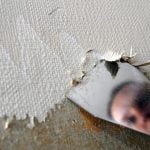Striving for a healthier, cleaner living environment is an ongoing concern for many homeowners. One of the essential aspects of a healthy home is air quality. In this article, we will explore how to improve the air quality of your home, from understanding what air quality is and why it matters, to practical tips and lifestyle changes that can make a significant impact.
Air quality refers to the state of the air within and around our homes, as well as its impact on health and comfort. Poor air quality can lead to various health issues, such as allergies, asthma, and respiratory problems. Understanding the importance of air quality is crucial in taking proactive steps to improve it.
Identifying common indoor air pollutants is the first step towards improving air quality in your home. From dust and pet dander to volatile organic compounds (VOCs) released by household products, being aware of these culprits is essential in addressing potential sources of poor air quality. With this knowledge in mind, you can then implement effective strategies to minimize their presence and impact in your living space.
Common Indoor Air Pollutants
When it comes to improving the air quality of your home, one of the first steps is to understand what indoor air pollutants are and where they come from. These pollutants can have a significant impact on the health and well-being of you and your family, so it’s important to identify and address them.
Here are some common indoor air pollutants to be mindful of:
- Volatile Organic Compounds (VOCs) from cleaning products, paints, and solvents
- Particulate matter such as dust, pollen, and pet dander
- Carbon monoxide from gas appliances and fireplaces
- Tobacco smoke
- Mold and mildew
Now that you know what to look out for, it’s essential to take action to reduce or eliminate these pollutants in your home. This can be done by implementing simple but effective strategies such as proper ventilation, using air purifiers, keeping a clean living space, incorporating indoor plants, maintaining HVAC systems, and making lifestyle changes.
By taking proactive measures to address these common indoor air pollutants, you can significantly improve the overall air quality in your home. Whether it’s investing in an air purifier or regularly cleaning and dusting your living space, every small step makes a difference in promoting cleaner and healthier air for you and your loved ones. Remember – a healthy home starts with clean air.
Tips for Ventilation
Proper ventilation is crucial for maintaining good air quality in your home. Without adequate air circulation, indoor air pollutants can build up and cause health problems. In this section, we will explore some tips for improving the ventilation in your home to promote cleaner and healthier air.
Open Windows and Doors
One of the simplest ways to improve ventilation in your home is by opening windows and doors. This allows fresh outdoor air to come in and stale indoor air to go out. Even just a few minutes of open windows each day can make a significant difference in the air quality of your home.
Use Exhaust Fans
In areas like the kitchen and bathroom where airborne pollutants are common, it’s important to use exhaust fans to remove them from the indoor environment. Cooking fumes, moisture, and other pollutants can be effectively eliminated by using exhaust fans, helping to maintain good indoor air quality.
Clean Air Ducts and Filters
Proper maintenance of your HVAC system is essential for good ventilation. Clean air ducts and filters allow for better airflow throughout your home, preventing the buildup of pollutants. Regularly inspecting and cleaning these components can significantly improve the overall air quality of your living space.
By implementing these ventilation tips, you can create a healthier environment for you and your family. Improving the ventilation in your home is an important step in ensuring clean indoor air, which is essential for maintaining overall well-being.
Importance of Air Purifiers
Air purifiers are a great investment for improving the air quality of your home, especially if you are dealing with indoor air pollutants. With a wide range of options available in the market, it can be overwhelming to choose the right one for your specific needs. Here are some tips on how to select the best air purifier for your home:
1. Consider Your Specific Needs: Determine what kind of air pollutants you want to target. If you suffer from allergies, a HEPA filter can effectively capture allergens such as dust mites, pollen, and pet dander. For odor elimination, look for an activated carbon filter. If mold is a concern, consider an air purifier with an ultraviolet germicidal irradiation (UVGI) feature.
2. Room Size: Measure the square footage of the room where the air purifier will be used. It’s important to choose a unit that is suitable for the size of the space to ensure maximum effectiveness. Some air purifiers are designed for small rooms, while others are suitable for larger living areas.
3. Noise Level: Pay attention to the noise level of the air purifier, especially if you plan to use it in bedrooms or other quiet spaces. Look for models with lower decibel ratings if noise is a concern in your household.
4. Energy Efficiency: Look for ENERGY STAR certified models that are energy-efficient and environmentally friendly.
Additionally, it’s important to regularly maintain and replace filters according to the manufacturer’s instructions in order for your air purifier to work effectively and efficiently over time.
Investing in a high-quality air purifier that fits your specific needs will significantly contribute to improving the overall air quality in your home and help create a healthier living environment for you and your family.
Household Cleaning Tips
Keeping your home clean is not only important for aesthetics, but also for the air you breathe. Dust and allergens can accumulate in your living space, leading to poor air quality and potential health issues. Here are some household cleaning tips to help improve the air quality of your home.
Regular dusting and vacuuming are crucial in reducing the amount of dust and allergens in your home. Use a damp cloth when dusting to prevent particles from becoming airborne, and make sure to vacuum carpets, rugs, and upholstery regularly. This will help eliminate dust mites, pet dander, and other allergens that can pollute the air.
In addition to dusting and vacuuming, it’s important to wash bedding, curtains, and other fabrics frequently. These items can harbor allergens and bacteria, so laundering them on a regular basis can help reduce their presence in your home. By maintaining a clean living space, you can significantly improve indoor air quality and create a healthier environment for you and your family.
| Household Cleaning Tips | Benefits |
|---|---|
| Regular dusting and vacuuming | Reduces dust mites, pet dander, and airborne particles |
| Frequent washing of bedding and curtains | Eliminates allergens and bacteria from fabrics |
The Power of Plants
Indoor plants not only add a touch of nature to your home decor, but they also play a significant role in improving the air quality. Plants have the natural ability to purify the air by removing harmful toxins and releasing oxygen through the process of photosynthesis. Understanding how plants can contribute to better air quality is essential for creating a healthy living environment.
Benefits of Indoor Plants
Indoor plants have been proven to remove common indoor air pollutants such as benzene, formaldehyde, and trichloroethylene from the air. These pollutants are often found in household items such as carpets, furniture, and cleaning products. By having indoor plants, you can significantly reduce the concentration of these harmful substances in your home, leading to cleaner and fresher air for you and your family.
Best Indoor Plants for Air Quality
Not all plants are equally effective in purifying the air. Some of the best indoor plants for improving air quality include peace lilies, spider plants, snake plants, and pothos. These plants are known for their ability to thrive indoors and are relatively low maintenance. When strategically placed around your home, these plants can make a noticeable difference in air purification.
Tips for Maintaining Indoor Plants
To ensure that your indoor plants continue to improve the air quality of your home, it is important to take good care of them. This includes providing adequate sunlight, proper watering, and regular pruning. Additionally, periodically wiping down their leaves with a damp cloth can help remove dust particles that may have settled on them.
Maintaining HVAC Systems
HVAC systems play a crucial role in the air quality of your home. If not properly maintained, these systems can actually contribute to poor indoor air quality by circulating dust, mold, and other allergens. It’s important to regularly inspect and maintain your HVAC system to ensure that it is operating efficiently and not causing any pollution within your home.
One way to improve the air quality of your home is by changing the air filters in your HVAC system regularly. This simple task can make a significant difference in the amount of dust and other particles that are being circulated throughout your home. Additionally, scheduling annual maintenance checks with a professional HVAC technician can help identify any issues with your system that may be impacting air quality.
Another important aspect of maintaining HVAC systems for cleaner air is to check for any leaks or blockages in the ductwork. Leaky ducts can allow pollutants to enter the air stream and circulate throughout your home, while blockages can restrict airflow and cause poor ventilation. Ensuring that your ductwork is sealed properly and free from obstructions is key to improving air quality.
Regularly maintaining your HVAC system is essential when it comes to achieving cleaner indoor air. By taking a proactive approach to caring for your heating and cooling systems, you can create a healthier living environment for you and your family.
| Aspect | Importance |
|---|---|
| Changing Air Filters Regularly | Significant impact on reducing dust and allergens |
| Scheduling Annual Maintenance Checks | Identifying potential issues early on |
| Checking for Leaks and Blockages in Ductwork | Preventing pollutants from entering the air stream |
Lifestyle Changes for Better Air
In conclusion, improving the air quality of your home is essential for creating a healthy and comfortable living environment for you and your family. By understanding the importance of air quality and identifying common indoor air pollutants, you can take proactive steps to create a cleaner and safer atmosphere in your home. Proper ventilation, the use of air purifiers, regular household cleaning, and the addition of indoor plants are all effective methods for improving air quality.
In addition to these strategies, it’s important to maintain your HVAC systems to ensure they are not contributing to poor air quality. Regular maintenance and cleaning of heating and cooling systems can significantly impact the cleanliness of the air in your home. Furthermore, incorporating lifestyle changes such as quitting smoking, reducing chemical usage, and promoting good indoor habits can also contribute to better air quality.
Overall, by implementing these tips and making conscious efforts to promote cleaner air in your home, you can create a healthier living space for yourself and your loved ones. Remember that small changes can make a big difference when it comes to the air you breathe indoors. It’s essential to prioritize the health and well-being of your household by taking proactive steps on how to improve the air quality of your home.

I’m thrilled to have you here as a part of the Remodeling Top community. This is where my journey as an architect and remodeling enthusiast intersects with your passion for transforming houses into dream homes.





